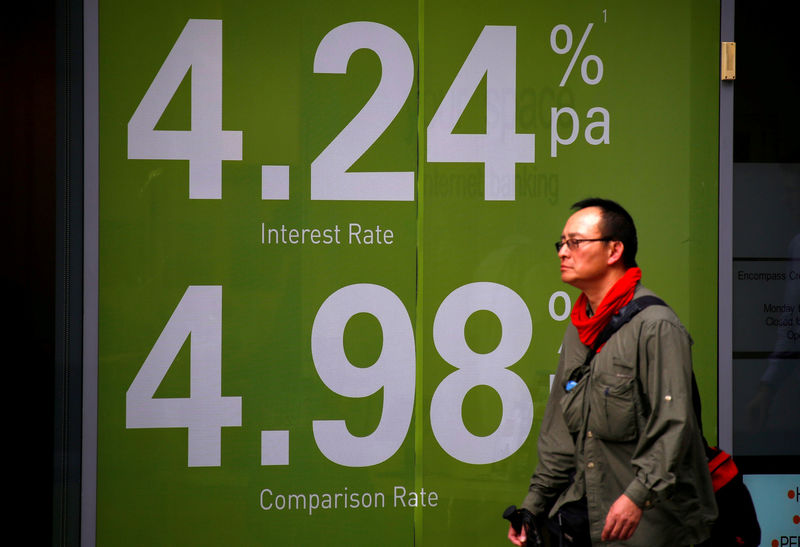Fiserv earnings missed by $0.61, revenue fell short of estimates
Updates with analyst comments, market reaction
Investing.com-- Australia’s consumer prices rose at their fastest quarterly pace in over two years in the September quarter, driven by a sharp rise in electricity costs, likely to keep the Reserve Bank of Australia cautious about further easing monetary policy.
CPI inflation rose 1.3% quarter-on-quarter in Q3, more than expectations of 1.1%, and picked up from 0.7% in the previous quarter, data from the Australian Bureau of Statistics showed on Wednesday.
CPI rose 3.2% year-on-year in Q3, up sharply from 2.1% in Q2, and beating forecasts of 3.0% growth.
It marked the highest quarterly increase since March 2023 and the strongest annual reading since June 2024, when inflation was 3.8%.
Underlying inflation, as represented by trimmed mean CPI, rose 3% y-o-y in Q3, against expectations that it would remain steady at 2.7%. On a q-o-q basis, the figure also grew more than expected.
“The largest contributor to the quarterly movement was electricity costs, which rose by 9.0%,” said Michelle Marquardt, ABS head of prices statistics. She noted that price reviews and delays in energy rebate payments across some states boosted out-of-pocket electricity costs.
Housing, recreation, and transport were also the main contributors to the quarterly rise, while prices for food and non-alcoholic beverages climbed, and services inflation strengthened.
"The door has been slammed shut on another RBA cut in November, and the next move in Australia’s cash rate now carries a real risk of being higher unless the labour market weakens meaningfully in the months ahead," Davis Scutt, senior market analyst at StoneX Group, said in a post on X.
The Australian dollar’s AUD/USD pair edged 0.2% higher after data release, while the country’s benchmark stock index S&P/ASX 200 climbed 0.8%.
The ABS also reported that its monthly CPI indicator rose 3.5% in September, up from 3.0% in August, underscoring renewed price pressures ahead of the transition to a full monthly CPI release in November.
"The upshot is that the Bank will almost certainly leave its policy rate unchanged at its meeting next week," Capital Economics analysts said in a note.
The RBA has turned cautious in its recent meetings, with monthly inflation figures picking up, remaining near the upper end of the central bank’s target range. Last month, it held its cash rate steady at 3.60%, opting to wait for clearer signs from inflation and labor market data.
